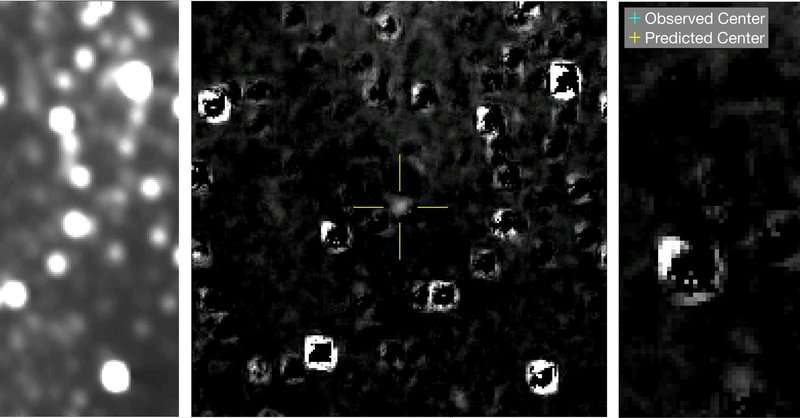NASA’s New Horizons spacecraft carried out a short engine burn on Oct. 3 to home in on the location and timing of its New Year’s flyby of the Kuiper Belt object nicknamed Ultima Thule.
Word from the spacecraft that it had successfully performed the 3½-minute maneuver reached mission operations at the Johns Hopkins Applied Physics Laboratory in Laurel, Maryland, at around 10:20 p.m. EDThe maneuver slightly tweaked the spacecraft’s trajectory and bumped its speed by 2.1 meters per second – just about 4.6 miles per hour – keeping it on track to fly past Ultima (officially named 2014 MU69) at 12:33 am EST on Jan. 1, 2019.
“Thanks to this maneuver, we’re right down the middle of the pike and on time for the farthest exploration of worlds in history – more than a billion miles beyond Pluto,” said mission Principal Investigator Alan Stern of the Southwest Research Institute. “It almost sounds like science fiction, but it’s not. Go New Horizons!”









Comments are closed.